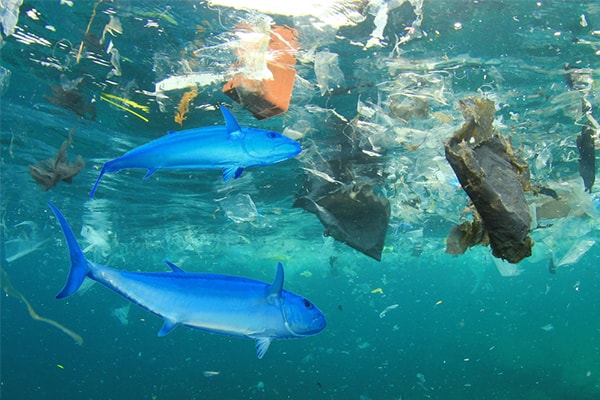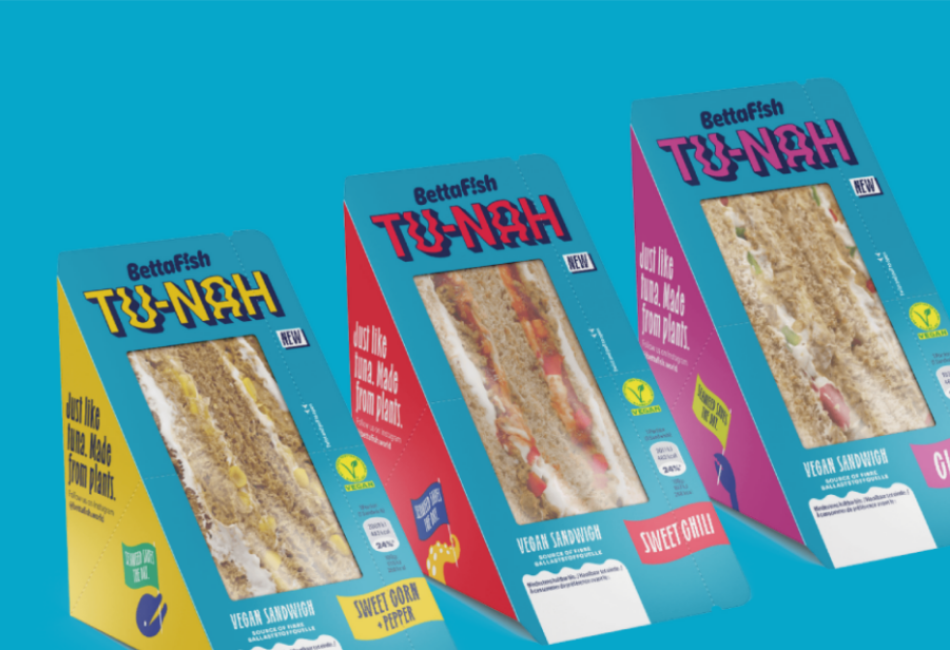Download Free Vegan Starter Kit -
.jpg)
Seafood May Be Gone By 2048, Says Nat Geo
While at first glance, this may not seem like a grave concern to most, the fact of the matter is that it’s something that affects all of us on a planetary scale.
Over-consumption is a grave problem the human race faces today. Gone are the days where meat and dairy were consumed sparingly and for ritual occasions, today it has become so mainstream that deviating from it would be considered abnormal. But this is not a post on ethics or morality.
This is one that concerns the environment and the future of our world, based on cold, hard, scientific facts. Some of you may be aware of the state of the Pacific Blue Fin Tuna, a delicacy and favourite on restaurant menus worldwide.
.jpg)
Trawlers like these catch thousands of fish on a daily basis
This fish has been hunted to near extinction – 90% of the species has disappeared from our oceans. In fact, it’s such a rare sight these days that recently in Tokyo, a single Blue Fin Tuna was sold for $2 million.
This Is Just The Beginning
What happens if this becomes the norm for many more species of fish? Are we going to stop only when there’s nothing left? Or come up with new, crueller ways of breeding fish through indoor aquaculture?
National Geographic News reported a detailed study which claimed that:
“The loss of ocean biodiversity is accelerating, and 29% of the seafood species humans consume have already crashed. If the long-term trend continues, in 30 years there will be little or no seafood available for sustainable harvest.”

Aside from fishing, another danger to marine life is plastic pollution in the oceans
The research backing this claim was conducted in a thorough and systematic fashion. The scientists looked at a number of data sources, including:
- Global fishing data from the U.N. Food and Agriculture Organization
- Fishing data (no pun intended) from all 64 major global marine ecosystems between 1950 and 2003
- Results from individual studies of marine areas by local scientists (including a study of the San Francisco Bay and its surrounding rivers).
- Data from 48 marine areas protected by conservation measures.
"Biodiversity is a finite resource, and we are going to end up with nothing left ... if nothing changes"
Boris Worm, Assistant Professor of Marine Conservation Biology, Dalhousie University, Halifax, Canada
The Situation In India
A telling sign that India is feeling the heat from excessive fishing can be seen in the 2018 Budget: 10,000 Cr has been set aside to boost fisheries and aquaculture. That’s 10,000 Cr that could have been allotted to plant-based agriculture to feed humans, as opposed to finding ways to spawn marine life.
Another major issue relevant to India is that trawlers off the Malabar and Coromandel Coast often catch thousands of extra fish in their nets when they reel in their ‘exotic’ species. Many of these fishes are pulled onto land, but not used for consumption - making it a sheer waste of precious aquatic life.
.jpg)
If we can't fix it, we must stop breaking it
Well Now That We Know This, What Can We Do About It?
Cutting down the amount of seafood we eat is obviously the first step as a society. Downsizing consumption will help reduce large-scale fishing itself, and, when done consistently over a period of time, will give the marine ecosystem room to slowly regenerate itself.
But, all and any change begins on an individual level - and it starts with what's on your plate. We've said it before, and we'll say it one more time - going vegan helps you, as well as animal and marine life. It's a way of eating that is better for the entire planet!
Like this?
Read: What is Animal Farming and How does it Affect us?
Read More: Why 30% Of The World’s Land Mass Is Used For Animal Agriculture
AUTHOR

trending
2.png)
Be a Vegan First Informer
Send us buzzworthy news and updates
related

Shiok Meats Plans First Commercial Pilot Plant For Cell-Based Crustacean Production After Funding

- VeganFirstDaily
- 2.9 K
.jpg)
ProVeg International Incubator Selects Indian Mock Meat and Seafood Startup ‘Mister Veg’

- Stuti Verma
- 2.8 K
.png)
Indian Plant-Based Startup Mister Veg Raises Rs. 4.25 Crore Funding from Jubilant Ingrevia

- Stuti Verma
- 23 K
Explore
Contact Us
About Us
Stay Connected
Copyright ⓒ 2017-2023. VEGAN PASSION PRIVATE LIMITED. All Rights reserved.
For more information, please write to hello@veganfirst.com
Registered Office Address: 55, 2nd floor, lane 2, Westend Marg, Saidullajab, Near Saket Metro Station, New Delhi, Gadaipur, New Delhi South West Delhi, DL

2.png)

.png)
.png)
2.png)
2.png)


1.png)



10.png)